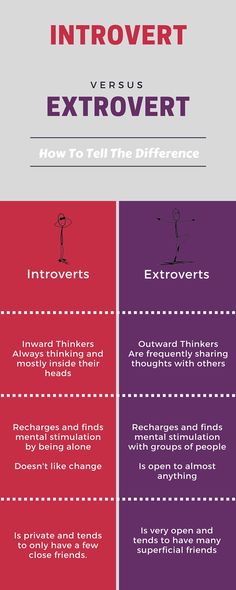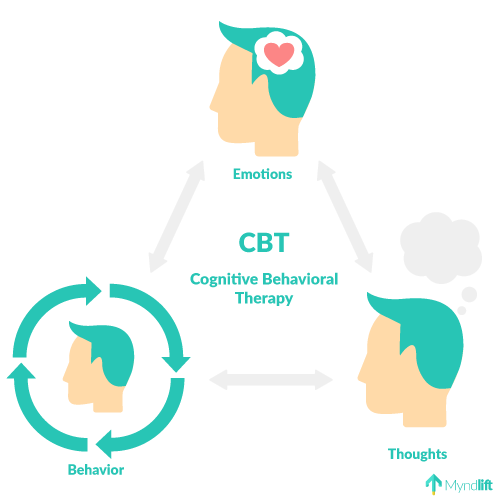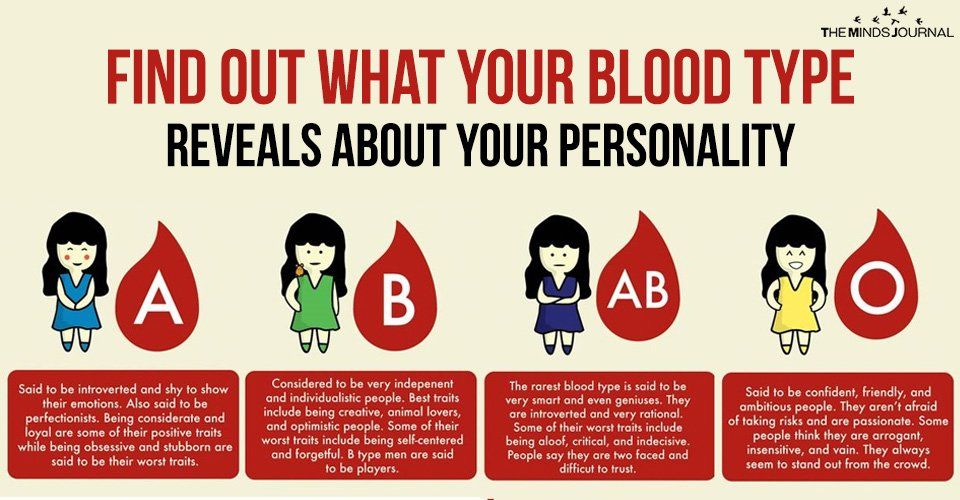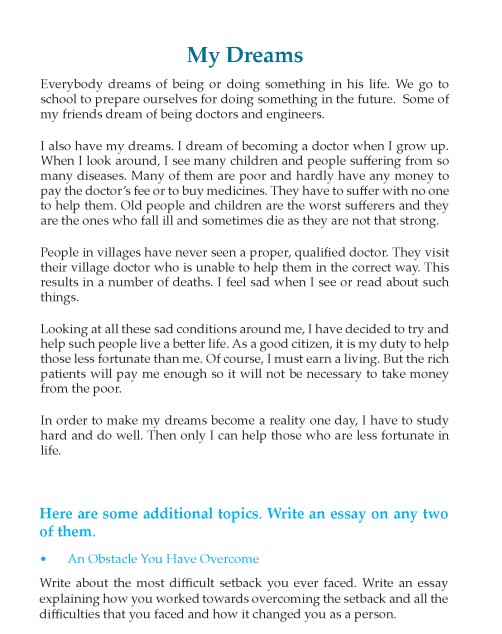How to tell if you are introverted or extroverted
How to Tell if You’re an Introvert or Extrovert at Work
Start
Everything that you need to know to start your own business. From business ideas to researching the competition.
- Business Ideas
- Strategy
- Startup
Grow
Our best expert advice on how to grow your business — from attracting new customers to keeping existing customers happy and having the capital to do it.
- Sales
- Customers
- Marketing
- Thrive
Grow » Thrive
Take these personality tests to determine if you’re introverted or extroverted, then use this information to help you navigate the workplace.
By: Sean Ludwig, Contributor
Both Introverted and extraverted people can thrive in business. It's key to know where you stand so you can maximize on your strengths and support your needs. — Getty Images/fizkesIn the workplace, sometimes it’s easy to tell introverts from extroverts based on social behavior, but some people are on the borderline and some introverts pretend to be extroverts. Given this, it can be good to know whether you identify as an introvert or extrovert to better understand your ideal workplace roles and strengths.
Find out if you’re an introvert or extrovert
First, it’s essential to know what to look for when identifying an introvert or extrovert, either for yourself or for a work colleague.
Introverts often showcase these and other traits:
- Have heightened self-awareness.
- Take time to make decisions.
- Prefer working alone.

- Prefer writing to talking.
- Feel exhausted after being in a crowd.
Extroverts typically showcase traits including:
- Enjoy social settings.
- Don’t need much alone time.
- Succeed more when working in groups.
- Have lower fear of taking a risk.
- Prefer talking to writing.
Quite a few publications offer free tests to sort people into different personality groups. These tests often include helping you discover if you lean toward introversion or extraversion. To better gauge these traits in yourself, try taking one or more of the following tests:
- 16 Personalities: One of the most popular personality quizzes online is the Myers-Briggs Type Indicator. Taking this test will put you into one of 16 different categories and identify you as introverted or extraverted. The site 16 Personalities offers a straightforward approach to Myers-Briggs. Take the test here.
- Adam Grant: Organizational psychologist and podcaster Adam Grant created a 10-question quiz for TED that can tell you if you’re an extrovert, introvert or ambivert.
 Take the test here.
Take the test here. - Psychology Today: If you want a deeper dive, Psychology Today offers a 25-minute test that is “designed to evaluate your individual tendency towards the outer world (extroversion) or the inner world (introversion).” Take the test here.
- Well + Good: The publication Well + Good also offers a simple quiz to help you understand your traits. Take the test here.
Once you’ve taken a few tests and determined if you’re an introvert or extrovert, then you should know a few tips that can help you navigate the workplace with this knowledge.
Make sure you have time to work on important tasks with complete focus, or simply take a much-needed break by blocking out time on your calendar and retreating to a quiet area.
Casey Bond, HuffPost, on how introverts can thrive in the workplace
Two work strategies for introverts
Despite the idea that introverts would not be naturally inclined to lead teams or companies, there are many roles in which introverts can succeed in business.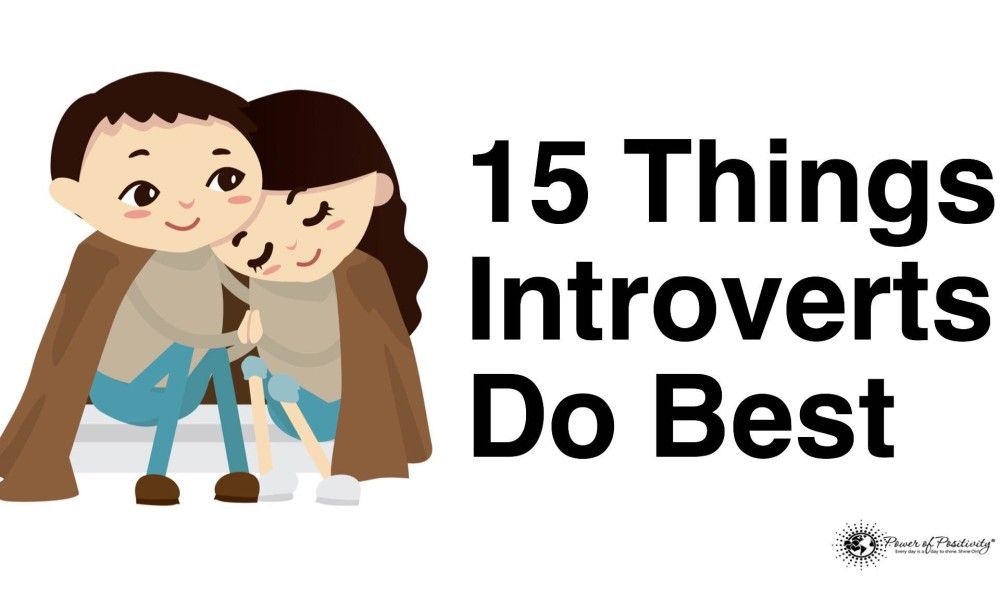
One crucial consideration for introverts is that they need time to process information, especially before group meetings. If you can give 30 minutes or more of notice, that will make for a more productive discussion.
“Without time to absorb the context, introverts tend to feel ambushed,” writes program manager Season Hughes for Atlassian. Like, ‘Why am I here? What’s going on?’”
Another key way to ensure introverts can get through the workday is by scheduling alone time.
“Make sure you have time to work on important tasks with complete focus, or simply take a much-needed break by blocking out time on your calendar and retreating to a quiet area,” writes Casey Bond in HuffPost. “Scheduling that alone time on your calendar will let coworkers know you’re busy and shouldn’t be disturbed.”
Two work strategies for extroverts
On the flip side, extroverts also can take advantage of their traits in the workplace. One way extroverts can succeed is by ensuring they work in roles with frequent interaction with others, whether face-to-face, on the phone or over video chat.
One way extroverts can succeed is by ensuring they work in roles with frequent interaction with others, whether face-to-face, on the phone or over video chat.
“Allow for interaction with other people,” notes Entrepreneur. “Extroverts may be more skilled at client-facing work, attending conferences, or in other environments where there is a great deal of interaction with other people.”
An additional consideration for extroverts is that they can make for exemplary leaders because they often experience more positive emotions from work.
“As happy employees are usually more satisfied, they tend to work harder and are perceived to be a better leader as a result,” Sally Percy writes in Forbes. “Extroverts’ positive demeanor also helps to buffer them from stress or adverse experiences at work. Since extroverts enjoy the company of others, they tend to adapt better to different social situations and are adept at persuasion, which is a strong leadership skill. ”
”
CO— aims to bring you inspiration from leading respected experts. However, before making any business decision, you should consult a professional who can advise you based on your individual situation.
Follow us on Instagram for more expert tips & business owners’ stories.
To stay on top of all the news impacting your small business, go here for all of our latest small business news and updates.
CO—is committed to helping you start, run and grow your small business. Learn more about the benefits of small business membership in the U.S. Chamber of Commerce, here.
A message from
Last chance to register!
Join us in the CO— BrandStudio on Friday, Nov. 18 for a free, virtual event where you’ll learn how to attract and retain the best talent at your business with strategic benefits planning. Financial experts will share best practices for achieving long-term financial growth for your business and your employees.
Subscribe to our newsletter, Midnight Oil
Expert business advice, news, and trends, delivered weekly
By signing up you agree to the CO— Privacy Policy. You can opt out anytime.
Published June 03, 2021
For more personal success tips
By continuing on our website, you agree to our use of cookies for statistical and personalisation purposes. Know More
The No. 1 way to determine if you're an introvert or extrovert
To determine whether you're an introvert or an extrovert, you must ask yourself one question: Where do you get your energy?
That's according to Susan Cain, best-selling author of "Quiet: The Power of Introverts in a World That Can't Stop Talking," and one of the most popular TED Talks speakers of all time with over 17 million views.
Imagine that you're at a party surrounded by people you like, she tells CNBC Make It. After a few hours of nonstop dancing and socializing, two things may happen. If you're an extrovert you will feel charged up and ready for the after party. Conversely, you'll leave feeling drained if you're an introvert.
After a few hours of nonstop dancing and socializing, two things may happen. If you're an extrovert you will feel charged up and ready for the after party. Conversely, you'll leave feeling drained if you're an introvert.
"For an introvert, it doesn't matter how good a time you've been having and it doesn't matter how socially skilled you might be," says Cain. "At the end [of the party], your internal battery is probably draining and so you're starting to wish that you were home in your pajamas."
There's a biological explanation behind this: Introverts and extroverts have different nervous systems, says Cain, which means that each personality type reacts differently to outside stimuli.
Introverts, for example, react much more to stimulation than their counterparts. "For introverts, we feel at our most alive and switched on when things are a bit calmer because there's less stimulation coming at us," Cain explains.
On the other hand, extroverts' nervous systems react less to stimulation, which means that they feel at their best when there is more happening.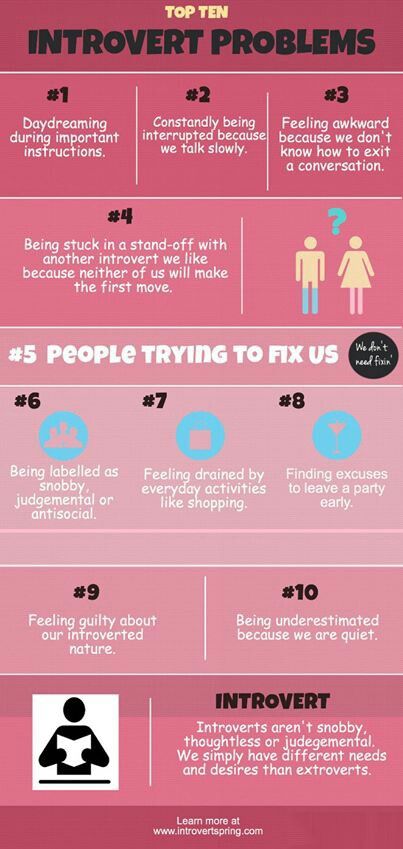 "For you, the liability is that when there's not very much going on, you'll start to feel bored and sluggish," says Cain. "And it will be hard for you to stay engaged."
"For you, the liability is that when there's not very much going on, you'll start to feel bored and sluggish," says Cain. "And it will be hard for you to stay engaged."
Susan Cain
Kimberly White | Getty Images
At work, introverts and extroverts have vastly different preferences on how they want to spend their time and interact with fellow colleagues.
Take meetings, for example. Extroverts enjoy thinking on their feet, brainstorming on the fly and simultaneously processing and articulating information.
Introverts? Not so much. In attacking a problem, introverts want to dive deep into the issue at hand and get there right away, says Cain. Extroverts will want to work their way into the problem first by connecting with their cohorts and discussing topics that may have nothing to do with the current subject.
"For introverts that can make them impatient," explains Cain. "For extroverts, if that's not happening, they may feel like they don't have the glue between them and the other person to actually get the problem solved.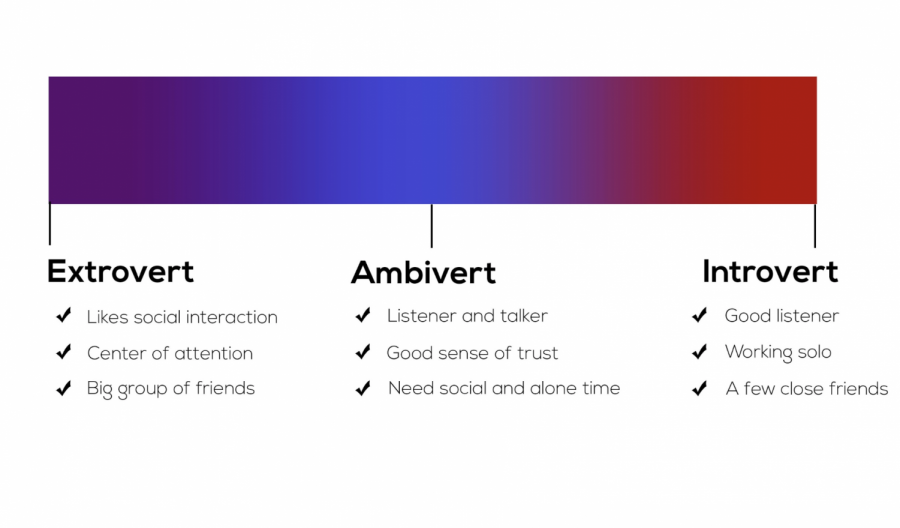 "
"
Cain notes that navigating the workplace can be difficult for introverted employees because we live in a world that caters primarily to extroverts. This is problematic, she says, considering that introverts make up almost half of the population.
However, introverts have their own strengths, particularly their ability to interact with others on a deeply personal level.
"Quiet, more reflective temperaments have really influenced the world," she says, "so workplaces should adapt to harness the talents of introverts."
Like this story? Like CNBC Make It on Facebook.
See also:
Here's a major way introverts can score a promotion
4 ways managers can keep introverted and extroverted employees from clashing
4 ways famous introverts Bill Gates and Warren Buffett can help you be a better boss
Test: introvert, extrovert or ambivert?
Why are some people sociable and active, while others prefer to withdraw into themselves? Why is the difference between some so strong that it is very difficult for them to understand each other? Due to different focus and perception. For some, they are directed to the outside world, for others, to their own experiences. Do you want to determine whether you are an ambivert, introvert or extrovert? The test will help you find out and learn a little more about yourself.
For some, they are directed to the outside world, for others, to their own experiences. Do you want to determine whether you are an ambivert, introvert or extrovert? The test will help you find out and learn a little more about yourself.
1. Do you enjoy working in a team or managing people more than doing all the work yourself?
Yes.
No.
2. Being tired after an emotionally heated day, would you rather stay at home than go to a concert of a famous star with your friends?
Yes.
No.
3. Usually your movements and speech are faster.
Slow, with arrangement.
Fast, confused.
4. Do you prefer music to which you can:
Dance, putting aside all thoughts.
Lose yourself in thoughts, images and/or emotions.
5. Does it often happen to you that you think so deeply about something that you hardly notice anything around you?
Yes.
No.
6. Do you like frequent change of activities, multitasking and fast pace of solving cases?
Yes.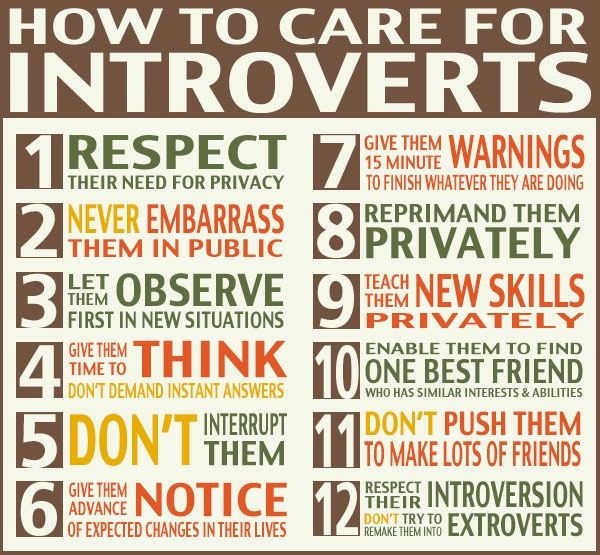
No.
7. Which of these problems related to the management and distribution of finances seems closer to you?
I save more often, sometimes I'm stingy, afraid to make a rash purchase.
I suffer from spending money, more often I throw away money on unnecessary things.
8. Do people around you misinterpret your emotions (called sad or angry when you are just focused, for example)?
Yes.
No.
9. Are you often told that you are terribly stubborn and very difficult to convince of anything?
Yes.
No.
10. You are usually much better at:
Plan your affairs, stick to the plan.
Improvise on the go.
11. For advice and information, you would rather contact:
Friends, professionals in a particular field.
Books, informational articles on the Internet.
12. Why do you think your loved ones appreciate you?
For the ability to cheer up, dispel anxieties.
For understanding, deep sympathy.
13. You are more often told that you act like you:
More years than you really are.
Less years than actual.
14. Do you often try to see your actions from the outside, understand their motives, predict the results?
Yes.
No.
15. What do you value most in people?
Activity, sense of humor.
Lack of obsession, tolerance.
16. You would rather prefer a job that offers:
A good salary and a prestigious position, but a disgusting team and an inadequate boss.
Warm relations with colleagues, fair bosses, but the average level of salary without much prospects for growth.
17. Is it easy for you to meet new people?
Yes.
No.
18. Do you tend to have long phone conversations (personal, non-work related)?
Yes.
No.
19. You are better at work that requires:
Attentiveness, thoughtfulness, perseverance.
Frequent movement, making quick decisions.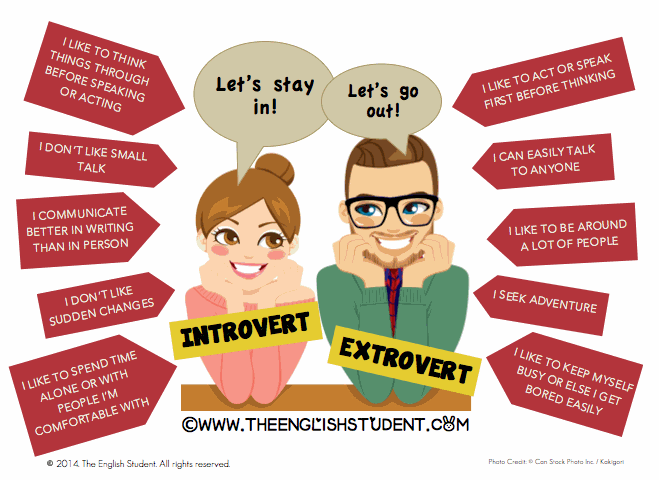
20. Do you prefer to think about your steps, to plan them clearly and in detail, before proceeding directly to action?
Yes.
No.
introvert, extrovert or ambivert?
At university I was friends with two sociable girls. They didn't look alike, but they had something in common. As it seemed to me then, they were united by pronounced extraversion. As soon as they quietly stood at the wall in anticipation of a couple, a booming company immediately gathered around. In the first year, when no one else really knew anyone, their names were remembered first. Gather those wishing to speak at the bottom of the faculty or go to a strip club? Of course they are! How surprised I was when both girls recently independently announced, "I think I'm an introvert." If they consider themselves introverts, then who is everyone else?
ARE THE HORMONES TO BE culpable?
At the everyday level, there is complete confusion in understanding the terms "extrovert" and "introvert".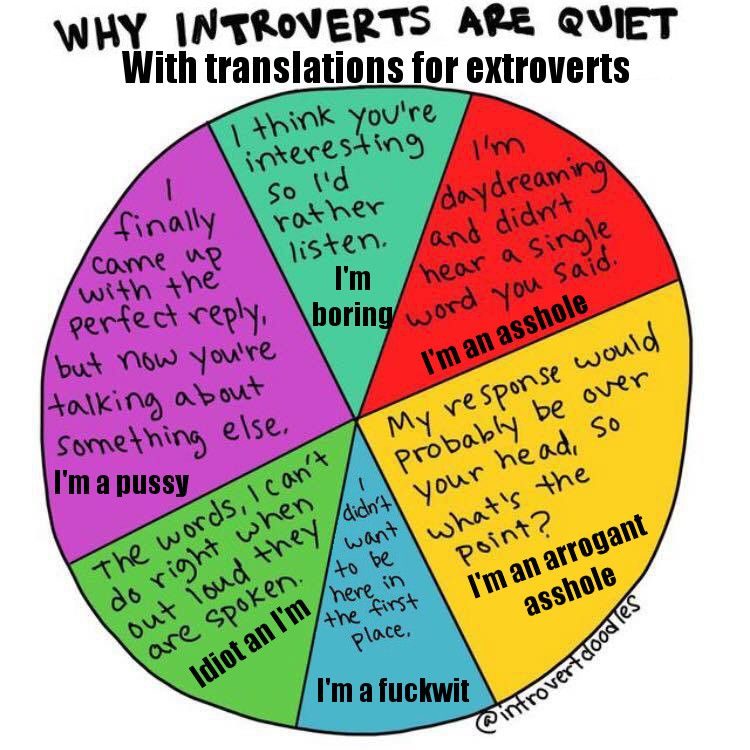 We used to associate the first with sociability, and the second with a craving for solitude, as if that explains everything. While the issue is so controversial that there is no consensus even among psychologists. The first scale of extra- and introversion in the dictionary of psychological terms was introduced by Carl Gustav Jung. According to Jung, an extrovert is introduced into the outside world by all means, without giving in to the experience of reflection, and an introvert defends himself from the outside, relying only on his inner feelings. An extrovert pays attention to events, accumulates facts and acquaintances, chooses a profession that is guaranteed to bring him income in the near future. An introvert is focused on his reactions to the outside world. Facts are interesting to introverts not in themselves, but as a basis for the formation of judgments, therefore, outstanding inventors, scientists, and writers are obtained from introverts. If you ask an extrovert what the weather is today, he will actually answer: “Snowy, minus five.
We used to associate the first with sociability, and the second with a craving for solitude, as if that explains everything. While the issue is so controversial that there is no consensus even among psychologists. The first scale of extra- and introversion in the dictionary of psychological terms was introduced by Carl Gustav Jung. According to Jung, an extrovert is introduced into the outside world by all means, without giving in to the experience of reflection, and an introvert defends himself from the outside, relying only on his inner feelings. An extrovert pays attention to events, accumulates facts and acquaintances, chooses a profession that is guaranteed to bring him income in the near future. An introvert is focused on his reactions to the outside world. Facts are interesting to introverts not in themselves, but as a basis for the formation of judgments, therefore, outstanding inventors, scientists, and writers are obtained from introverts. If you ask an extrovert what the weather is today, he will actually answer: “Snowy, minus five.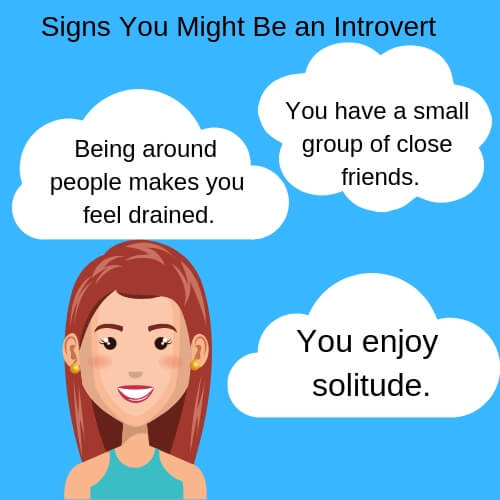 ” An introvert will answer the same question subjectively: "I'm cold." According to Jung, it is the focus on the external or internal world that distinguishes an extrovert from an introvert. Note that this has nothing to do with sociability or a desire for solitude.
” An introvert will answer the same question subjectively: "I'm cold." According to Jung, it is the focus on the external or internal world that distinguishes an extrovert from an introvert. Note that this has nothing to do with sociability or a desire for solitude.
Related content:
Why are beautiful girls often lonely and what to do about it?...
The destructive power of regrets and why we need them...
According to the laws of the pack: why do we want to please everyone so much...
Despite the fact that each person is predisposed to a particular personality type from childhood, Jung does not consider extra- and introversion to be an innate or physiologically determined quality. Rather, a reaction to upbringing and the general cultural background. Psychologist Hans Jurgen Eysenck undertook to connect the scale of extra- and introversion with physiology. Studying the behavior of a group of soldiers - healthy and recognized as neurotic - he somewhat modified the terms proposed by Jung.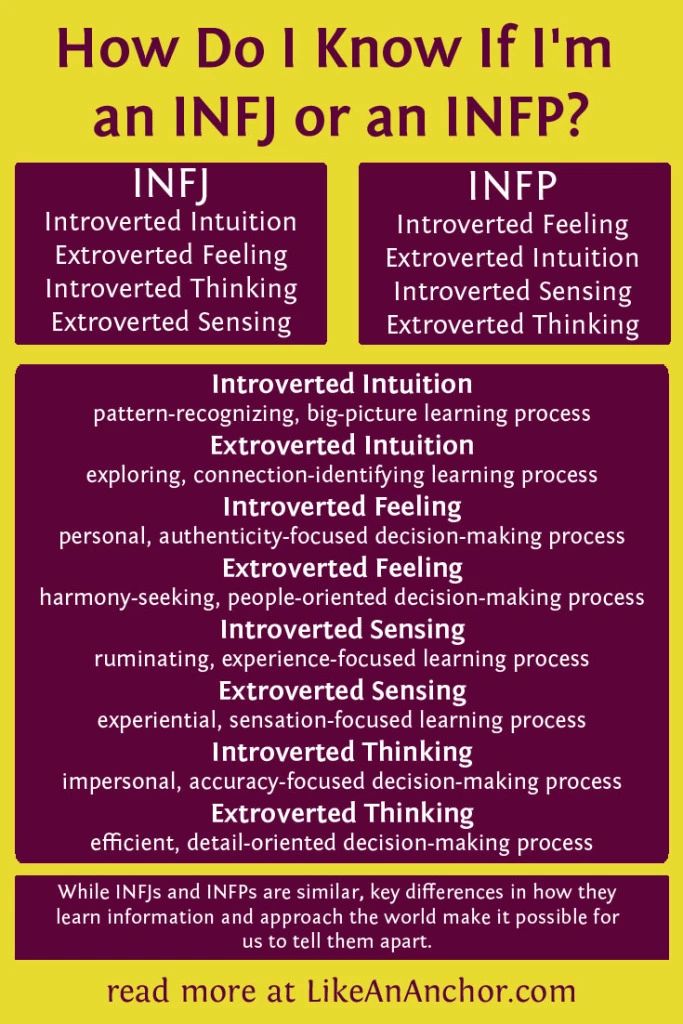 According to Eysenck, introverts are naturally very sensitive to external stimuli and therefore avoid situations that require a strong emotional response (for example, noisy communication). Extroverts, on the other hand, are not excitable enough, so they deliberately look for situations that can “recharge” them. Modern research develops Eysenck's idea, believing that the craving for communication or solitude is associated with the production of the pleasure hormone - dopamine. Introverts initially have more dopamine than extroverts. Therefore, they do not seek to "get" from the outside, while this is vital for extroverts.
According to Eysenck, introverts are naturally very sensitive to external stimuli and therefore avoid situations that require a strong emotional response (for example, noisy communication). Extroverts, on the other hand, are not excitable enough, so they deliberately look for situations that can “recharge” them. Modern research develops Eysenck's idea, believing that the craving for communication or solitude is associated with the production of the pleasure hormone - dopamine. Introverts initially have more dopamine than extroverts. Therefore, they do not seek to "get" from the outside, while this is vital for extroverts.
Similar materials:
Why time runs faster with age, and what can be done with it...
Violetovo: How to master the subtle art correctly...
Does everything that does not kill really make us stronger?..
RIGHT IN THE CENTER
The game of “guess who is who at this party” is my friend Oleg's favorite pastime. He begins to closely observe newcomers to the company in order to make an authoritative verdict on their personality type in ten minutes.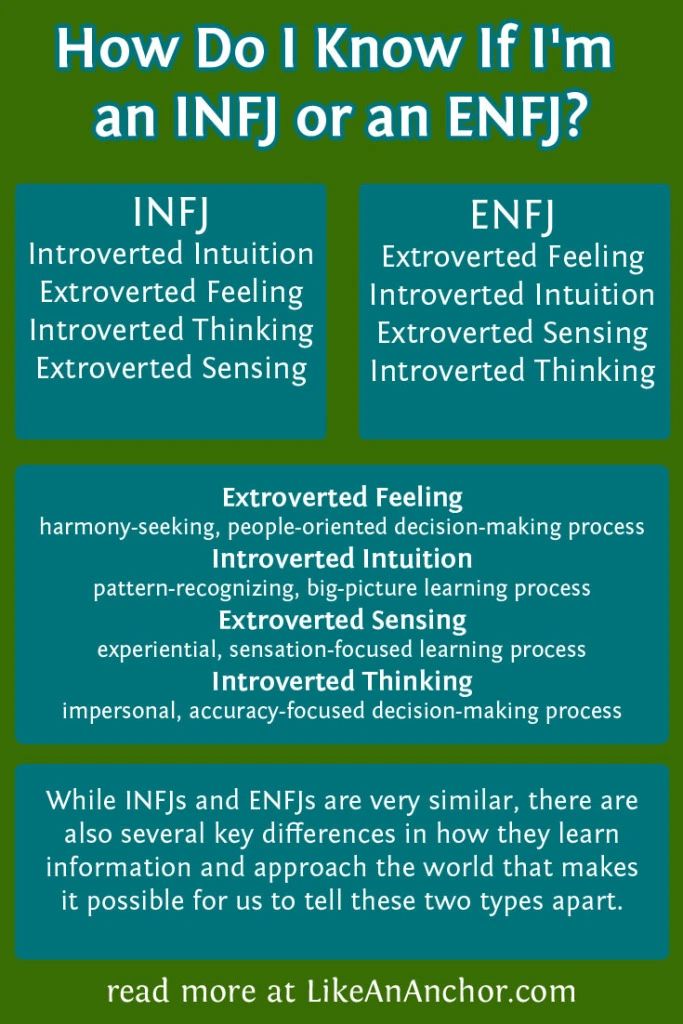 At the same time, Oleg stubbornly refuses to take into account the fact that most mentally healthy people are ambiverts.
At the same time, Oleg stubbornly refuses to take into account the fact that most mentally healthy people are ambiverts.
The term "ambivert" was first proposed by Eysenck in 1947, referring to people who combine the hypersensitivity of introverts and the expansive sociability of extroverts. Twenty years earlier, in one of his lectures on extroverts and introverts, Jung noted: “There is, finally, a third group where it is very difficult to say where motivation comes from: from outside or from inside. This group is the most numerous. The psychologist emphasized that our conscious extraverted or introverted attitudes are always compensated by opposite unconscious ones. Therefore, the behavior of a shy person easily changes when he drinks. The conscious introverted attitude recedes and extraversion appears. As long as they work together, the person is balanced and harmonious. When they collide, neurosis begins. If we think of intro- and extraversion as a horizontal scale, most of us will be in its middle (ambivert) values.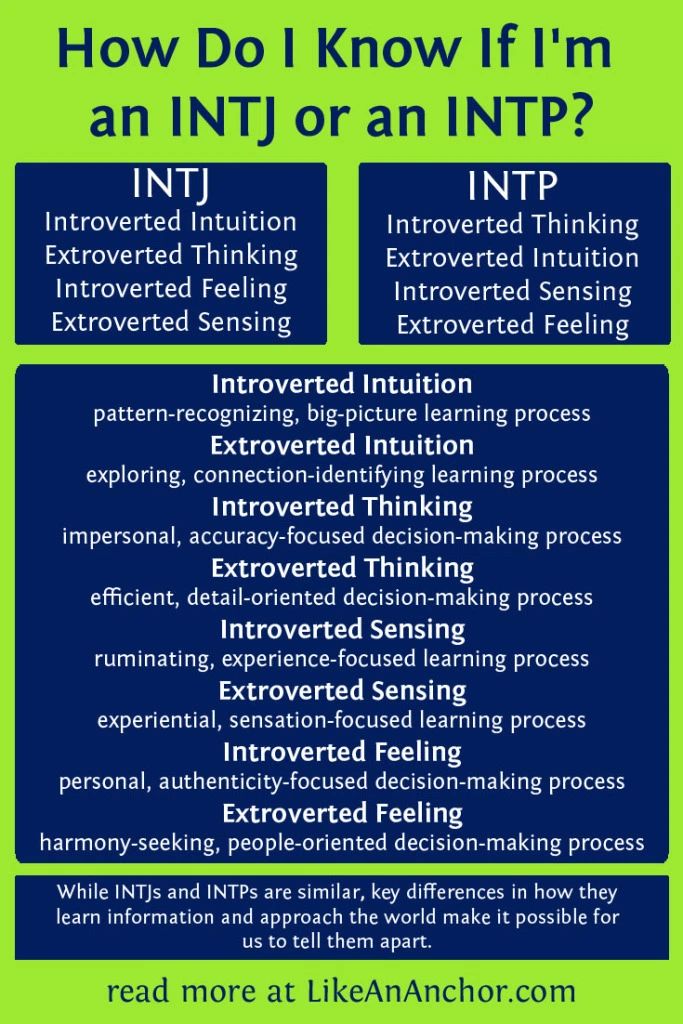 We can shift in one direction or another in extreme situations, but in ordinary life we are close to the center and react to the world alternately - either as introverts or as extroverts.
We can shift in one direction or another in extreme situations, but in ordinary life we are close to the center and react to the world alternately - either as introverts or as extroverts.
INTROVERT TIME
So thanks to the fathers of psychology for the great news: most of us are capable of anything! Listen carefully and speak contagiously, enjoy noisy companies and solitude, be interested in the facts of the outside world and pass them through yourself, creating something new. But the question remains: why then did so many of my sociable acquaintances abruptly begin to call themselves introverts? I found three explanations for this phenomenon. First, introversion is in vogue today. Some hundred years ago, extraversive thinking was considered fashionable and “correct” in European culture. This is not surprising - at the beginning of the last century, an encyclopedic mind was highly valued, capable of memorizing a large number of facts without giving in to their personal assessment.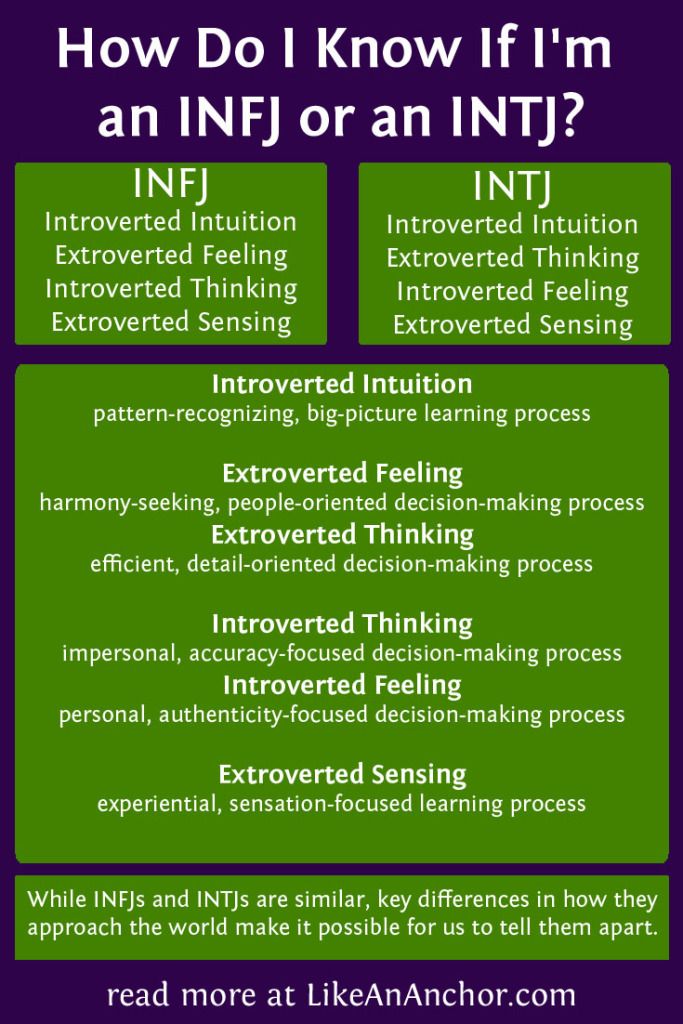 The same Jung, describing the features of an introvert, seems to justify him in front of an invisible extrovert - a typical representative of his generation.
The same Jung, describing the features of an introvert, seems to justify him in front of an invisible extrovert - a typical representative of his generation.
Related content:
Why do we feel envy when looking at other people's success?...
Yes, but no: Why is it sometimes so difficult for us to pronounce a word...
Wind of change: new life priorities as a sign...
Today the pendulum has swung the other way. The role of the encyclopedic mind is played by Google, and the ability to convey one's unusual view of the world is valued much higher than a banal statement of facts. Rock stars of our time are "introverted" IT specialists and scientists. While extroverted sociability has become synonymous with the obsession inherent in market traders.
Second, calling yourself an introvert is a great defense strategy. The dictation of positivity, self-improvement and improved Instagram reality spoils even the strongest nerves.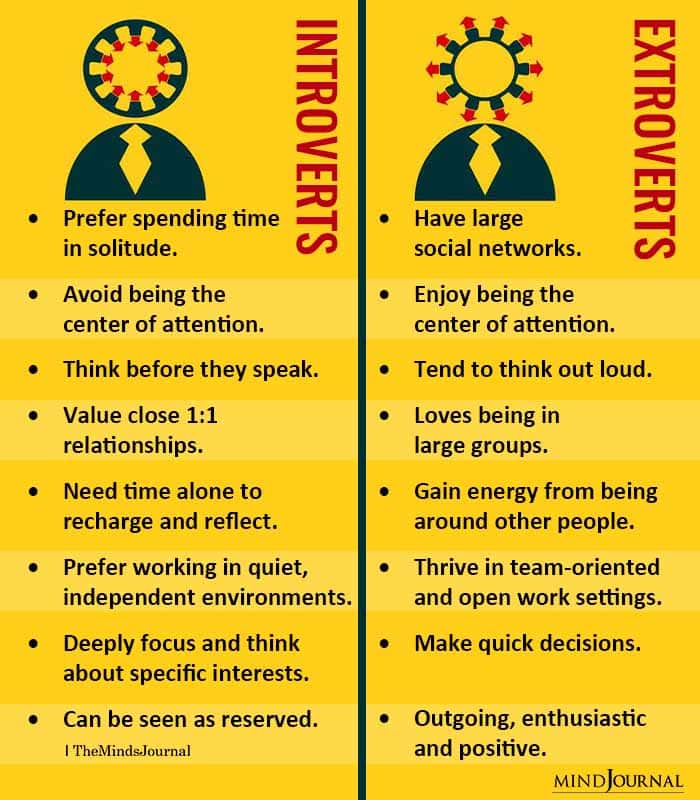 In the world of magical stories about how someone just believed in a dream and everything worked out, it’s as if you have an obligation to be a purposeful, hyper-sociable nya who is always doing well. Not the worst way to hide from this is to hang an invisible sign over your head “Beware of the introvert!”. An unpleasant employee wants to personally discuss some insignificant issues? Sorry, I'm an introvert, it's better to send by mail. The boss forces you to attend an absolutely useless event? Oh, I would love to, but what's the point if I'm an introvert ... People who don't want to offend are invited to give a lecture in a coworking space on the other side of town? I would love to, but in this weather, my attacks of introversion become terribly aggravated ... Pretending to be an introvert in unpleasant situations is like folding your hands over your head and shouting: “Chick-chirp, I'm in the house!” The main thing is not to play.
In the world of magical stories about how someone just believed in a dream and everything worked out, it’s as if you have an obligation to be a purposeful, hyper-sociable nya who is always doing well. Not the worst way to hide from this is to hang an invisible sign over your head “Beware of the introvert!”. An unpleasant employee wants to personally discuss some insignificant issues? Sorry, I'm an introvert, it's better to send by mail. The boss forces you to attend an absolutely useless event? Oh, I would love to, but what's the point if I'm an introvert ... People who don't want to offend are invited to give a lecture in a coworking space on the other side of town? I would love to, but in this weather, my attacks of introversion become terribly aggravated ... Pretending to be an introvert in unpleasant situations is like folding your hands over your head and shouting: “Chick-chirp, I'm in the house!” The main thing is not to play.
Similar materials:
“When at the age of 36 I no longer had a husband or children, I.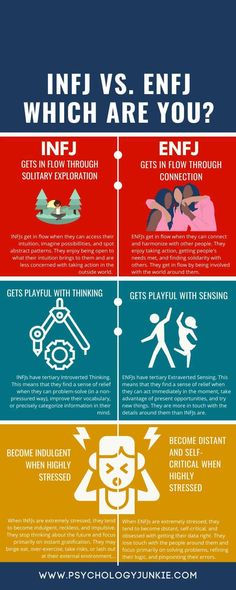 ..
..
Just papers: why are we embarrassed to talk about...
I say that I'm going to...
And the third thing: introversion sells. Demand creates supply. The fashion for a “shy” personality type is quickly picked up by savvy authors of coaching literature, promising a magic pill of success to everyone who buys their book, lecture, video lesson. "Identify your weaknesses and turn them into advantages!" - say the slogans of books in the spirit of "An introvert is also a leader." There are hardly any references to specific studies, and in order to simply diagnose introversion in yourself, it is enough, for example, to feel the desire to be alone at the end of the working day. Jennifer Kanweiler, author of The Introvert Leader. How to succeed in a society dominated by extroverts,” writes: “It seems that extroverts get everything, and your needs are simply ignored? You do not have the energy for "business communication"? Nobody listens to you in meetings? If the answer is “yes”, then you are most likely an introvert, and you are by no means alone in this world. Among the most authoritative leaders are many introverts: Bill Gates, Warren Buffett. Mother Teresa, Martin Luther King, Abraham Lincoln also fell under suspicion. Apparently an introvert and President Obama." How can you not want to join Mother Teresa and Barack Obama? Moreover, at the same time, all sins are forgiven, suspiciously similar to official duties.
Among the most authoritative leaders are many introverts: Bill Gates, Warren Buffett. Mother Teresa, Martin Luther King, Abraham Lincoln also fell under suspicion. Apparently an introvert and President Obama." How can you not want to join Mother Teresa and Barack Obama? Moreover, at the same time, all sins are forgiven, suspiciously similar to official duties.
FROM SIDE TO SIDE
In fact, the desire to sit in silence and solitude after a busy day is not a typical behavior of an introvert, but an ambivert. He is like a skier who balances on the slope, shifting his weight from one foot to the other. The trick is to be able to switch at will. Due to the fact that ambiverts do not know how to “transfer weight” from the extraverted side in time, they get carried away and they seriously begin to consider themselves one hundred percent introverts. Something similar happened to my college girlfriends, who got so tired of the role of throwing parties that they wanted to hide in a recreational shell.